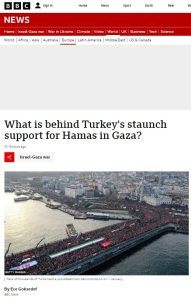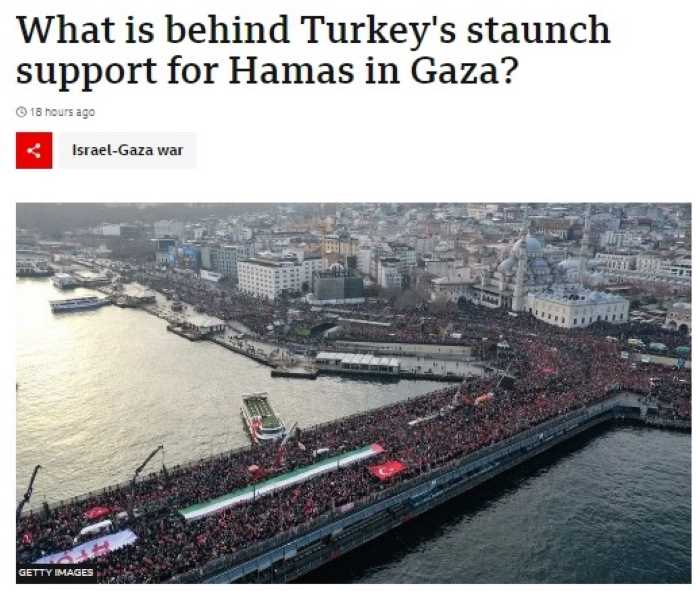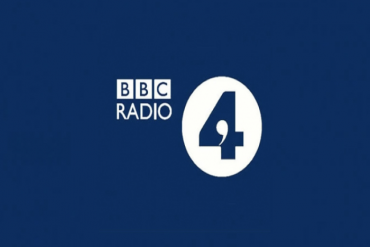On January 2nd the BBC News website published a backgrounder titled ‘What is behind Turkey’s staunch support for Hamas in Gaza?’ as part of its coverage of a story about arrests made in Turkey on the same day.
Written by Ece Goksedef, that backgrounder tells readers that:
“Since he [Turkish President Recep Tayyip Erdogan] first came to power more than 20 years ago, Turkey has been a staunch supporter of the Palestinians, including Hamas.”
And:
“But it was not long after Recep Tayyip Erdogan came to office in 2002 that relations with Israel deteriorated while those with Hamas improved. In 2006, then-Hamas leader Khaled Meshaal visited Turkey following an invitation from Mr Erdogan. Hamas had by then been designated a terrorist group by Israel, the US and the EU, amongst others.”
Remarkably, BBC audiences are not told of the history of Erdogan’s relations with the Muslim Brotherhood or Turkey’s related hosting of groups such the IHH.
The fact that since 2011 Hamas has maintained a presence in Turkey from where it has directed operations against both Israel and the Palestinian Authority and run financial affairs is not mentioned at all in Goksedef’s article.
Goksedef also tells BBC audiences that:
“But just a year later [2010] tensions reached breaking point when a ship, the Mavi Marmara, sailed from Istanbul to Gaza with volunteers and humanitarian aid to challenge Israel’s maritime blockade of the Gaza Strip.
When the Mavi Marmara refused to halt, Israeli commandos raided it in international waters and 10 Turkish citizens on board were killed in ensuing clashes. The incident led Turkey to suspend diplomatic relations with Israel for several years.” [emphasis added]
As documented in the UN commissioned Palmer Report, the Mavi Marmara carried 546 passengers but no humanitarian aid supplies for the people of the Gaza Strip.
“If the flotilla had been a purely humanitarian mission it is hard to see why so many passengers were embarked and with what purpose. Furthermore, the quality and value of many of the humanitarian goods on board the vessels is questionable. There were large quantities of humanitarian and construction supplies on board the Gazze 1, Eleftheri Mesogeio and Defne-Y. There were some foodstuffs and medical goods on board the Mavi Marmara, although it seems that these were intended for the voyage itself. Any “humanitarian supplies” were limited to foodstuffs and toys carried in passengers’ personal baggage. The same situation appears to be the case for two other of the vessels: the Sfendoni, and the Challenger I. There was little need to organize a flotilla of six ships to deliver humanitarian assistance if only three were required to carry the available humanitarian supplies. The number of journalists embarked on the ships gives further power to the conclusion that the flotilla’s primary purpose was to generate publicity.”
On at least three occasions in the past decade the BBC has had to correct the inaccurate claim that the Mavi Marmara was carrying “humanitarian aid”:
BBC RECOGNIZES THAT THE MAVI MARMARA WAS NOT AN “AID SHIP” (2013)
BBC NEWS AGAIN MISREPRESENTS THE ‘MAVI MARMARA’ AS AN “AID SHIP” (2016)
BBC NEWS CONTINUES TO TOUT INACCURATE PORTRAYAL OF THE ‘MAVI MARMARA’ (2016)
Given that BBC News nevertheless continues to promote that disinformation, CAMERA UK has submitted a complaint requesting yet another correction.
Related Articles:



